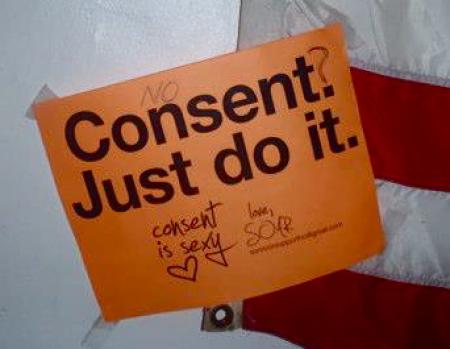Serendip is an independent site partnering with faculty at multiple colleges and universities around the world. Happy exploring!
public policy
"Consent is Sexy" at Haverford: Not Yet
I’d been working on another paper for this web event, one linking human rights abuses to sexual assault, and examining the relevance of transitional justice mechanisms. After the past three days, however, I feel compelled to share some of what’s been going on in my quest to build “right relationships” between people – students, administrators, faculty, and staff – on Haverford’s campus.
The Context: Rape and Sexual Assault at Haverford College
Haverford is mandated by the Clery Act to report crime statistics, including sex offenses. According to Haverford College’s 2011 Security & Fire Safety Report, there were reported 4 forcible sex offenses in 2008, 7 forcible sex offenses in 2009, and 8 forcible sex offenses in 2010. The same report listed 0 non-forcible sex offenses for the same years (but does not define how it distinguishes between forcible and non-forcible sex offenses).
(Source: 2011 Fire & Security Safety Report, Haverford College, 2011. Page 6.)
The Security Report goes on to acknowledge, “According to the U.S. Department of Justice, crimes of sexual assault are among the most underreported of all crimes. This is especially true on college and university campuses.” It continues, “Any reported rape or sexual assault will be treated confidentially with concern and sensitivity…All victims of campus crime are strongly encouraged to report the incident.”




